This post is also available in:
![]() Français (French)
Français (French) ![]() Русский (Russian)
Русский (Russian)
By Elena Lysak
Isabelle Bordry is well-known in the world of the French Digital Media. At the dawn of the Internet era, she launched in France one of the once most important search engines, Yahoo! Directory.
She became the Managing Director of Yahoo ! France and General Operations Director of Yahoo! Europe.
Today, Isabelle is the owner of innovative Marketing company. She is a Business Angel and a leader of Nous Citoyens initiative in the region of Ile-de-France.
In the interview with Madame Success, Isabelle shared the secret to having a successful high-flying career and a happy family life.
Before anything else, success is about creating your own story.
I don’t believe that success comes with a big S. Success is rather the sum of small daily successes.
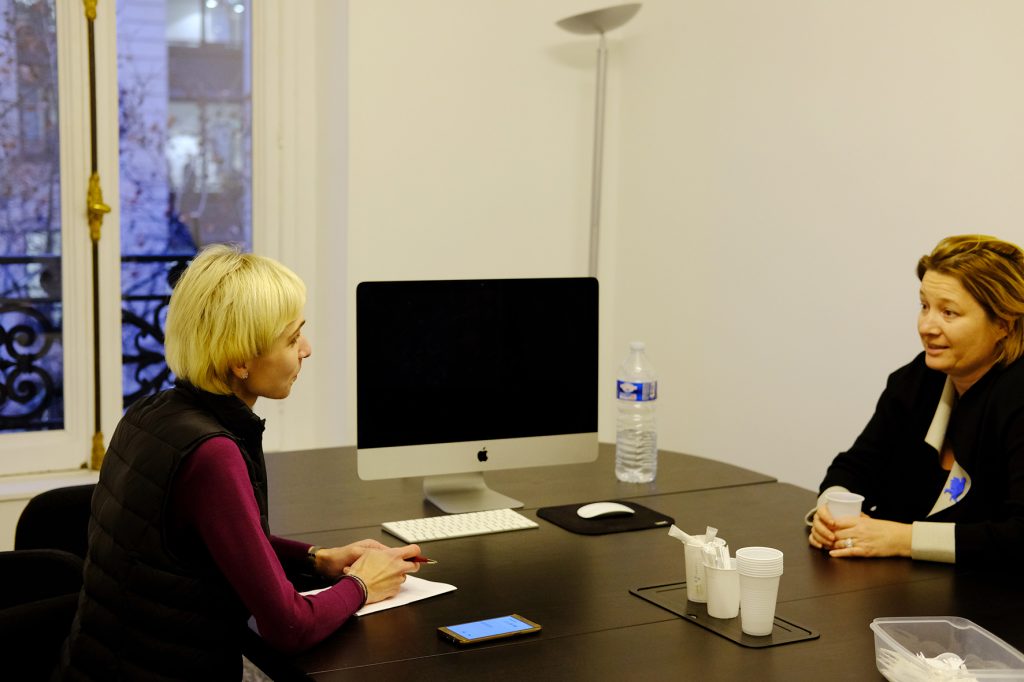
Isabelle, one of the goals of our project is to find out what success means to women. What is your definition of success?
I feel successful when I do well on my personal goals. Making progress towards my personal goals is my driving force, it brings me satisfaction, it has an impact on my actions.
I would say, it is important to really know yourself, to be brutally honest with yourself about your values and your priorities. Your idea of success needs to be in line with your inner needs and motives.
However, there is no straight path to success.
When it comes to success, some women dream of being a high-ranking business leader, while others would rather picture themselves as a well-known artist.
Besides, we might be influenced by the external perception of our success.
For example, our professional strengths and weaknesses are often defined by other people. Our goals can be influenced by how others see us. We shouldn’t forget, not everyone has the same vision of the world.
The social weight of external expectations can be high, but we can challenge the measure of our success. The moment we let go of external expectations, we become more focused on our own vision of success.
To sum up, my definition of success is to know myself, to define my own values, to set up my own priorities and to be able to work on things that make me happy every day, things that are in line with my own priorities and my own values.
Do you believe that there’s a difference in success for men and women? Can we talk about gender and success?
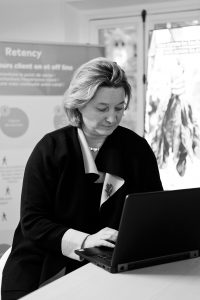
When it comes to defining success for men and women, our society still has pretty much distorted standards.
More than women, men are expected to succeed professionally, to achieve a higher level of authority, to be high earners.
I would use a very high isosceles triangle with a small base to depict the success for men. The height standing for the income or authority level expected from successful men.
While a wide parallelogram feels more appropriate to depict success for women. The width standing for different elements expected from successful women.
Women’s success is a much more balanced and broader concept.
The family has a privileged place. Being a mother might empower women, it helps to put many things into perspective.
Today, we are pushing men towards having more family responsibilities, yet we do not reduce the social pressure.
It’s incredible but we still look at a man pushing a baby stroller in a different way than at a woman with a baby stroller.
There should be no difference, it’s the same responsibility.
What is more important for you, work or family?
For me, work is essential. Working – is an important part of my life, and it is a positive element of my family life.
Working allows me to achieve some of my aspirations, to contribute my brick to building our society.
So, balancing work and family life is important for me.
I always had a “Think Big” philosophy, and I always really wanted to change the world.
Let’s go back to the beginning of your career. We are in 1997, you are launching Yahoo! in Europe. What was driving you?

I wanted to change the world!
It felt like we had that absolutely incredible tool that would revolutionize our access to information, knowledge, and the way we work.
I was lucky enough to work together with other people, to be part of this team that helped to radically changed the digital landscape in France.
Weren’t you a bit afraid to immerse into the unknown universe?
I was 27 years old. I was young. I said to myself: “This is where you ought to be if you really want to change things.”
We were only six people in the team. Six people to launch this project in France. We adopted that Anglo-Saxon idea of ”Think Big”.
We had the ambition to change the world.
I wanted to use the chance and I followed my intuition. So, I threw myself into this adventure.
Do you believe in destiny?
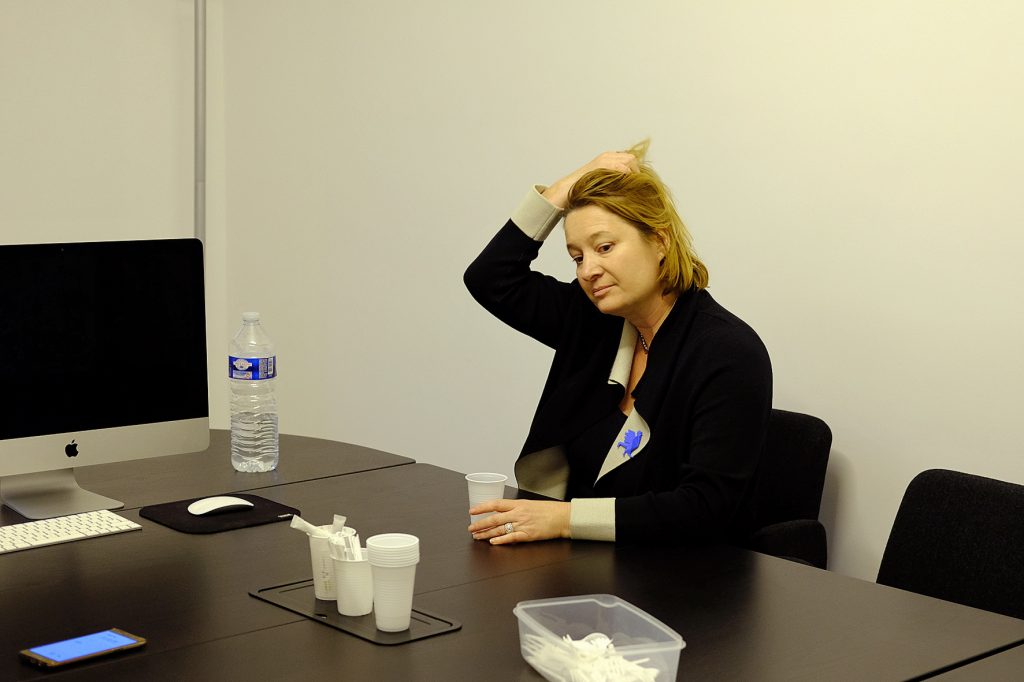 I do not believe in destiny or luck. I believe in the existence of real opportunities and in the ability to use or not to use them.
I do not believe in destiny or luck. I believe in the existence of real opportunities and in the ability to use or not to use them.
Luck or destiny have a passive side, either you are lucky, or not.
When it comes to the opportunities, it’s about being active: you either act upon them, or not.
For me, it’s important to have a lot of willpower, to work hard, to use the opportunities when they come.
I also believe that we should always follow our passions. It helps us to bring out the best in us.
I’ve always been passionate about information and the media. This passion got me involved into some exciting Internet projects in 1997.
You are active on Social Media. You often tweet about politics. Are you politically engaged?
Yes, of course.
I ran for the 2014 European elections in 2014 in France. I represented a new political party formed from the Civil Society organisation Nous Citoyens.
 I came top in the region of Ile-de-France at the last regional vote.
I came top in the region of Ile-de-France at the last regional vote.
“Nous Citoyens” is a political movement that has the will and power to stop the rise of the National Front (France’s far right).
Many traditional parties were struggling to properly oppose the Front National. We took a different approach. We decided to involve the real citizens who had never been politically engaged before.
We managed to spread new ideas and to remind that Europe offers amazing opportunities to the citizens!
Are the Digital media helping to shape the political discourse today?
Sure. The emerge of social media has an impact on the public discourse. It changed the way in which political communication takes place.
The President of the Republic used to deliver speeches prepared by his team. New media today are used as a direct communication channel between the politicians and their electorate.
For instance, we can follow and answer the messages of Donald Trump or Emmanuel Macron on Twitter. Social media help to structure the communication process in a different way.
I’ve always been interested in how it is working.
We try to nurture our children rather than control them.
You work in the Digital media, but you are also a mother. What is your attitude toward your children’s media use?
We prefer talking about things instead of banning them. Our sons have a Kindle and an iPad. They use the computers, they know how to use Apple music. We allow our sons to play video games. They love Sim City and Kerbal Space Program.
Yet, we help them to choose the good quality content that would teach them to stay critical and curious.
I notice that you say “we”. Is your husband equally involved into your sons’ education?
Yes, equally shared parenting is very important.
We both are happy that our sons are as passionate about music as we are. We both love organising common family activities, such as hiking, trips, etc.
Apart from doing things with your family, do you have time for sport or hobbies?
Yes, I do. I love walking. I try to walk regularly, especially in Paris. I also love Pilates.
I stay connected for any work-related questions
Sounds like you have a great work-life balance. Can you disconnect when you are on holidays? Are you missing work?
I stay connected for urgent or unexpected work-related situations. This is an advantage of digital tools we have today. Yet, it’s up to us to define how much and when we want to connect.
It’s possible for me to relax knowing that people can reach me if there is an emergency. I believe I found the right balance.
Isn’t it too tiring?
Sometimes, but it is important for me to be able to control the process. Besides, I’m not alone, I delegate a lot.
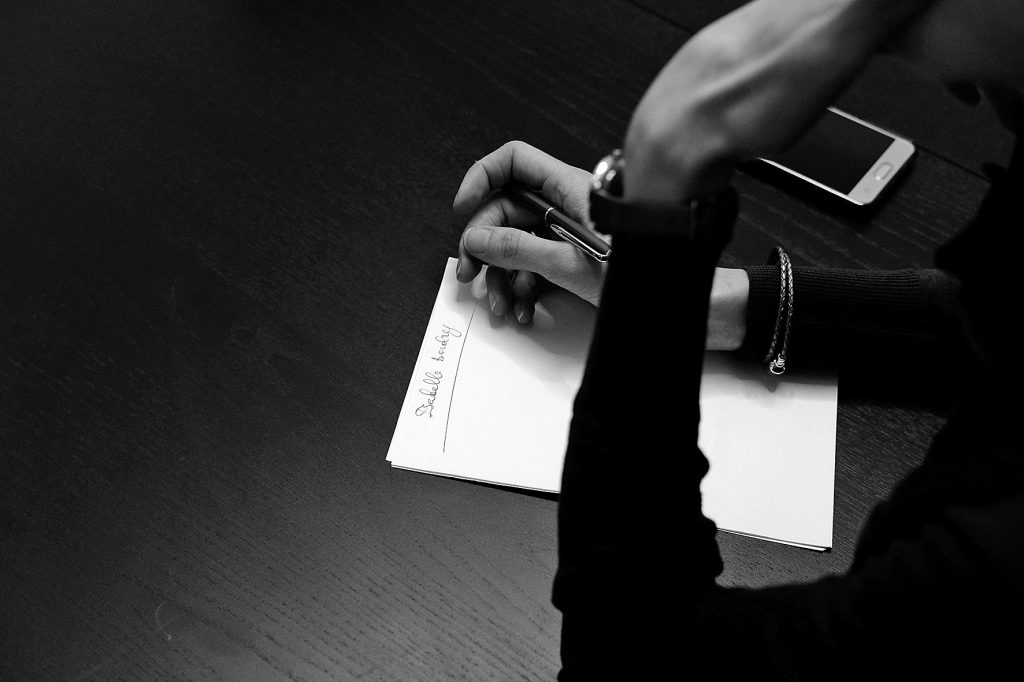
What helps you to organize your life every day? Any specific tools you prefer?
The tool I use the most is available to everyone – I am a big fan of Google Calendar. I use it to plan my day, besides I like that it sends reminders both to my phone and to my email.
What does your daily routine look like? What are your daily rituals?
I would usually start my day in the office with a coffee. I love that. But besides, I don’t have any particular routine.
My days are always very different. That’s the way I love it. I would start my day in the office at 8:30 am.
I would always get home for my children’s dinner, whether I eat with them or not.
Your life is well planned. Do you ever procrastinate?
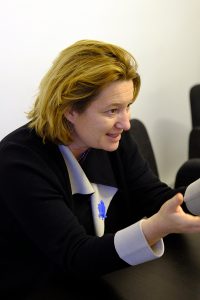
I try not to postpone the things that can be done immediately. Getting things done as they come can save a lot of time.
During the day, I don’t have much time left for procrastination.
I am more laid back in the evening. I might lose the sense of time reading news or checking my Social Media feeds.
What is the best advice you want to give to your kids?
My husband and I try to give our sons the means to learn and do what they love. We support activities that bring them satisfaction, freedom, and happiness.
Hence, the advice I would love to give to them and to everyone else is
Follow your passion!
Photos : Asya Moiseeva.
Translated by Natalia Yurevich
Useful links
Connect with Isabelle Bordry:
Other links: